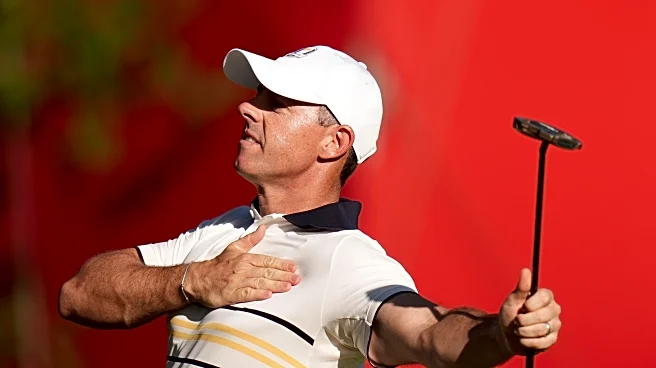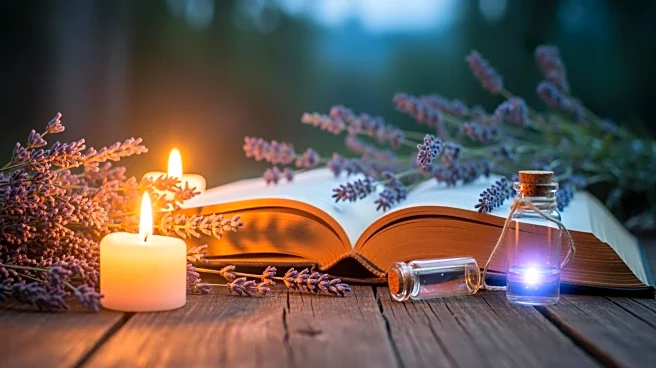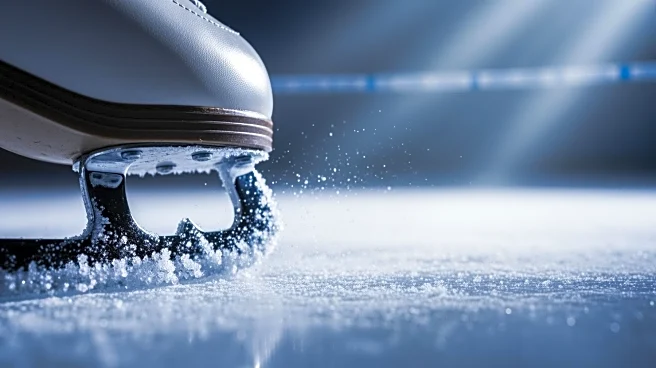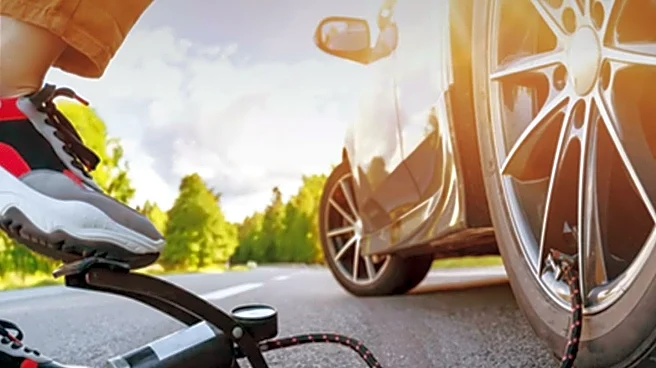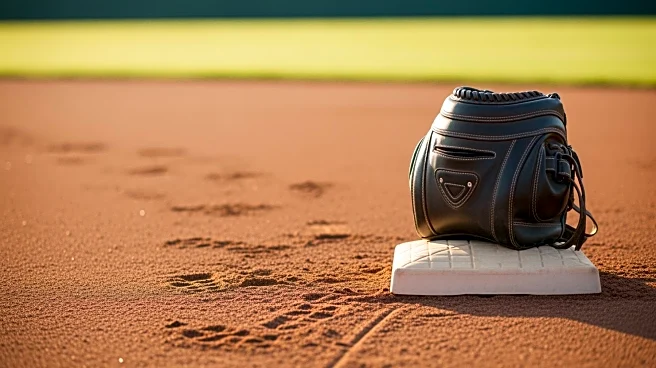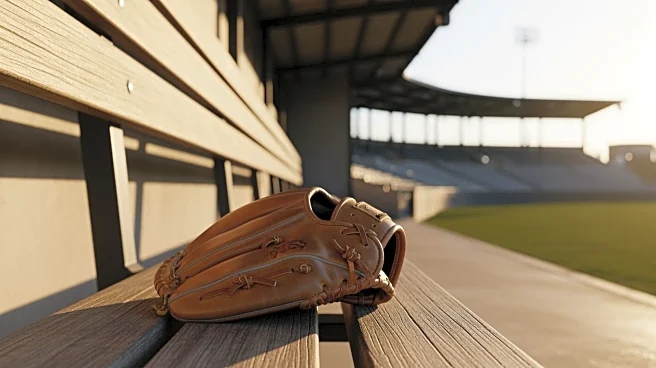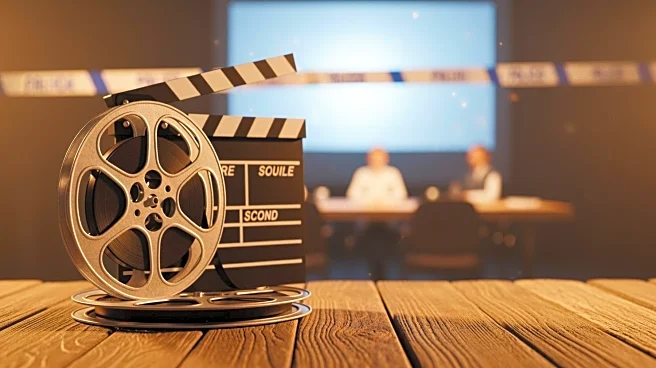FARMINGDALE, N.Y. (AP) — Rory McIlroy didn't get it quite right when he said winning the Ryder Cup on the road was one of the greatest accomplishments in golf. He left out “for the Americans.”
McIlroy offered this observation a month before the 2023 matches in Rome, and it made perfect sense. The Americans had gone 30 years since last winning the Ryder Cup on European soil
. Does anyone think it will be any easier two years from now in Ireland?Yes,
it had been since 2012 that Europe won away from home. But that's only two road losses. One was at Hazeltine in 2016 with a team that had five rookies who never played another Ryder Cup. The other was at Whistling Straits in 2021 with a team in transition (four players in their 40s) and virtually no European fans because of COVID-19 travel restrictions.
Europe has won 11 of the last 15 times — four of those on the road — since the last time the Americans won overseas.
It will take more than a task force to turn the tide.
Tiger Woods is the presumed choice as the next U.S. captain. He was in line to do it at Bethpage Black until saying he didn't have time, even though no one is sure what he does. He will take 12 players from the top 25 in the world who grew up inspired by Woods. That might be what unifies them.
Europe is inspired by something greater, which is why it owns this competition.
Justin Rose let some of the secret sauce spill during one of the more lucid winning news conferences. The topic was putting, and Rose made more than his share. Why this week?
“I wish I knew. I wish I could be a bit more selfish and know that 25 weeks of the year,” he said. "Do you know what I mean? I feel like the power of this, the power of the group, who knows what it is? That ability to lock in, the ability to just want it that little bit more.
“The answer to your question is I don't know, other than the badge and the boys, honestly. That's all that matters, honestly, the badge and the boys.”
The badge is that emblem on the crest of their shirt.
Team Europe.
Captain Luke Donald, and others before him, have been brilliant at reminding Europe of its legacy in these matches. They honor those before them, and their remit is to create a legacy for those who follow. That is the European way.
The celebration after big moments typically includes a European player pounding that emblem. Think back to Ian Poulter and his sublime, single-handed performance at Medinah and how often he pounded that emblem. Rose did the same when he made a big putt at Marco Simone that kept the Americans from a full point in a fourballs match.
The Ryder Cup is in their blood. It means everything.
“Future generations will talk about this team and what they did and how they were able to overcome one of the toughest environments in all of sport,” Donald said. “That is inspiring to me and that’s what Rory gets and all of these other 11 guys get as well.”
The Americans have great players who care deeply, and the sting of losing burns. They feel strongly about their teammates. They are a close group coming into the matches and even closer when they leave. But is it in their blood?
Justin Thomas raised eyebrows in 2016 — he was 22, still two years away from making his first team — when he said he would rather be on a winning Ryder Cup team than win a major. He was mildly criticized by American pundits. Such thinking is the norm in Europe.
It wasn't just the emblem on the shirt. José María Olazábal, a vice captain at Bethpage, pulled open his shirt during the Sunday celebration and revealed a silhouette of Seve Ballesteros stitched on the inside. It was in a place where it would be next to their hearts.
Ballesteros is the reason continental Europe was added in 1979, a time when the PGA Tour put up obstacles for Europeans instead of a welcome mat.
McIlroy has said what changed his mind about the Ryder Cup being an exhibition was his first one in Wales in 2010. The voice of Ballesteros on a speakerphone filled the team room. He was home in Spain with a brain tumor. Among the messages to the European team: “Go get them so hard that they'll all be caddies in the future.”
It was always personal for Ballesteros.
The essence of the Ryder Cup really was a battle between two tours. That's what put a chip on Europe's shoulder, always being looked upon as what Padraig Harrington once described as “country cousins.” It's still there, even with the entire European team playing the PGA Tour.
Europe was helped by having the greatest continuity in history, with 11 returning players from the winning team in Rome.
It could practically assure two points a session with the tandems of Jon Rahm-Tyrrell Hatton and McIlroy-Tommy Fleetwood. Not only are those teams 4-0-0 in foursomes over the last two Ryder Cups, none of the matches reached the 18th hole.
U.S. captain Keegan Bradley and his team made their share of mistakes, starting with a setup with minimal rough (soft greens was a product of Mother Nature). Bradley said he should have trusted his instincts. Left unsaid was whom he trusted.
Their analytics also had Collin Morikawa and Harris English in foursomes — twice — even though Data Golf had them rated as No. 132 out of 132 possibilities.
The Ryder Cup is filled with hindsight and what-if moments. Europe has the cup, as usual. The American will try to win it back in two years in Ireland. Now that might be the greatest accomplishment in golf.
___
On The Fringe analyzes the biggest topics in golf during the season. AP Ryder Cup coverage: https://apnews.com/hub/ryder-cup
